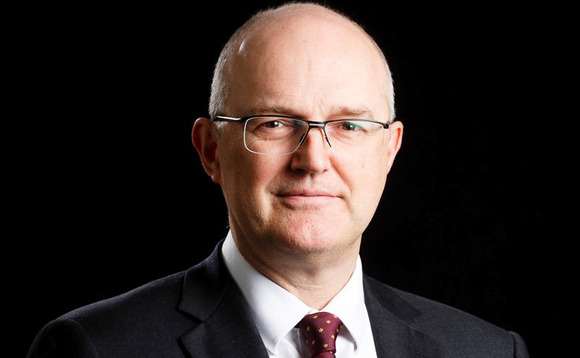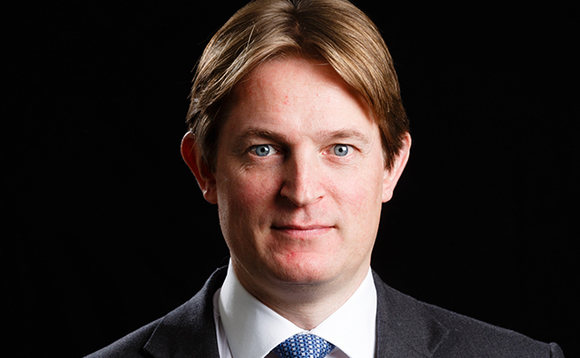
GP Profile: Beechbrook Capital

- Sponsorless lending strategy began in 2015
- Currently raising PD III with €200-250m target
- Hopes to market UK SME II in 2018
- Manchester office opened in May 2017
Specialist lender Beechbrook Capital is currently raising its third fund for sponsor-backed SMEs. Denise Ko Genovese speaks to founders Nick Fenn and Paul Shea about the creation of a sponsorless strategy and the origins of the firm
"The view we had post-financial-crisis was that there was going to be a changed lending landscape in Europe and we wanted to be a part of that," says Beechbrook Capital co-founder and managing partner Nick Fenn. "The perception was that banks would continue to provide capital to SMEs but would be constrained, creating opportunities for non-bank lenders."
The financial crisis gave Europe and Beechbrook the impetus to follow in the footsteps of the US, and more specifically, to be a new type of lender to SMEs, explains Fenn. As an industry, appetite for borrowing did recover but not to previous levels for smaller companies. This created a gap in the market, which Beechbrook was founded to fill.
What started as a single-pronged strategy has now bifurcated. When the lender started up in 2008, it provided loan capital to companies with revenues of €10-100m in northern Europe and usually only those that were private-equity-backed, explains Fenn.
The split is not 2% and 20% unfortunately, as the target returns are lower in the private debt market but we are at the PE end of the spectrum as far as debt funds go

We established a sponsorless fund because we had a lot of businesses coming to us and we were restricted by our original fund's parameters, so couldn't help them" – Paul Shea, Beechbrook Capital
The first fund, Beechbrook Private Debt I closed in 2010 on €100m, including add-ons, and is now 100% deployed. Investors have had 1.2x money back to date. Private Debt II closed in 2013 with more than €150m in commitments; it has returned 0.3x to date and is fully deployed.
The lender is currently on the fundraising trail for Private Debt III, with €125m in commitments already secured towards a €200-250m target. The fund has made five investments already, including growth financing to support H2 Equity Partners' investment in Netherlands-based flight simulation manufacturer Multi Pilot Simulations; a mezzanine loan for LDC's luxury restaurant group D&D London; and a mezzanine loan to part-refinance senior debt and provide operational finance for Lonsdale Capital's Scotland-based engineering services business Nucore Group.

On the back of inverse enquiries, Beechbrook launched its sponsorless strategy for UK-headquartered companies in 2015. UK SME Credit I fund made a final close on £151m in January 2017 and is more than 50% deployed in 10 transactions to date. The most recent were for the specialist provider of executive search services Wilton & Bain and underfloor heating products supplier Nu-Heat.
The intention is to start marketing UK SME Credit II later this year.
"We established a sponsorless fund because we had a lot of businesses coming to us and we were restricted by our original fund's parameters, so couldn't help them," says co-founder and managing partner, Paul Shea. "We hired Jon Herbert to run the new business and set about raising a separate fund," he says, adding that there are different routes to market and nuances regarding corporate governance, meriting a separate fund. "Particularly in terms of portfolio management, we have to be much closer to the company."
Structuring
The debt fund is structured with a typical GP/LP set-up and an eight-year fund life, though target returns are lower.
"The split is not 2% and 20%, unfortunately, as the target returns are lower in the private debt market, but we are at the private equity end of the spectrum as far as debt funds go," says Fenn. "Our target net returns are similar to mezzanine funds at roughly 9%."
To date, Beechbrook's LPs are mainly European insurance and pension funds, though the lender did receive funding from the British Business Bank and European Investment Fund in its second vehicle.
"I would say we offer higher returns than private debt in general – especially than in the upper-mid-market where returns are coming down," says Fenn.
Beechbrook also has a co-investment programme, along the same lines as a GP fund, though since Beechbrook's investments are at the smaller end of the spectrum – €8-9m for the private-equity-backed strategy and £8m for the sponsorless one – a co-investment is not always appropriate. However, where the lender needs a top-up they will ask their LPs, especially since there is no leverage in the fund.
Key people
• Nick Fenn co-founded Beechbrook in 2008 with Shea and sits on the investment committee. He is a qualified ACA and spent 14 years in the banking industry, lastly at Mizuho Corporate Bank, where he was head of loan syndication and mezzanine.
• Paul Shea co-founded Beechbrook in 2008 with Fenn and sits on the investment committee. Shea has more than 15 years in the asset management industry. Prior to founding Beechbrook, he worked in the investment banking division of Schroders before moving to MetLife Investments and then Mizuho.
Latest News
Stonehage Fleming raises USD 130m for largest fund to date, eyes 2024 programme
Multi-family office has seen strong appetite, with investor base growing since 2016 to more than 90 family offices, Meiping Yap told Unquote
Permira to take Ergomed private for GBP 703m
Sponsor deploys Permira VIII to ride new wave of take-privates; Blackstone commits GBP 200m in financing for UK-based CRO
Partners Group to release IMs for Civica sale in mid-September
Sponsor acquired the public software group in July 2017 via the same-year vintage Partners Group Global Value 2017
Change of mind: Sponsors take to de-listing their own assets
EQT and Cinven seen as bellweather for funds to reassess options for listed assets trading underwater







